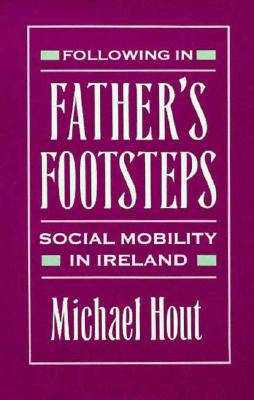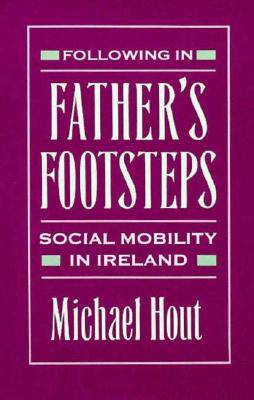
Door een staking bij bpost kan je online bestelling op dit moment iets langer onderweg zijn dan voorzien. Dringend iets nodig? Onze winkels ontvangen jou met open armen!
- Afhalen na 1 uur in een winkel met voorraad
- Gratis thuislevering in België vanaf € 30
- Ruim aanbod met 7 miljoen producten
Door een staking bij bpost kan je online bestelling op dit moment iets langer onderweg zijn dan voorzien. Dringend iets nodig? Onze winkels ontvangen jou met open armen!
- Afhalen na 1 uur in een winkel met voorraad
- Gratis thuislevering in België vanaf € 30
- Ruim aanbod met 7 miljoen producten
Zoeken
Omschrijving
This is the first systematic study of patterns of social mobility in Ireland. It covers a recent period--the 1960s--when Ireland was undergoing rapid economic growth and modernization. The author thus was able to test the widely accepted hypothesis that growth weakens class barriers. To his surprise he found that it did not. Social mobility increased somewhat, but among mobile men the better jobs still went to those from advantaged social class origins. Despite economic development and demographic change, the underlying link between social origins and career destinations remained unchanged.
In chapters on education, life cycle, religion, and farming, Michael Hout shows how inequality persists in contemporary Ireland. In the last chapter he reviews evidence from other countries and concludes that governments must take action against class barriers in education and employment practices if inequality is to be reduced. Economic growth creates jobs, he argues, but economic growth alone cannot allocate those jobs fairly.Specificaties
Betrokkenen
- Auteur(s):
- Uitgeverij:
Inhoud
- Aantal bladzijden:
- 384
- Taal:
- Engels
- Reeks:
Eigenschappen
- Productcode (EAN):
- 9780674307285
- Verschijningsdatum:
- 18/12/1989
- Uitvoering:
- Hardcover
- Formaat:
- Genaaid
- Afmetingen:
- 163 mm x 243 mm
- Gewicht:
- 762 g

Alleen bij Standaard Boekhandel
+ 169 punten op je klantenkaart van Standaard Boekhandel
Beoordelingen
We publiceren alleen reviews die voldoen aan de voorwaarden voor reviews. Bekijk onze voorwaarden voor reviews.











